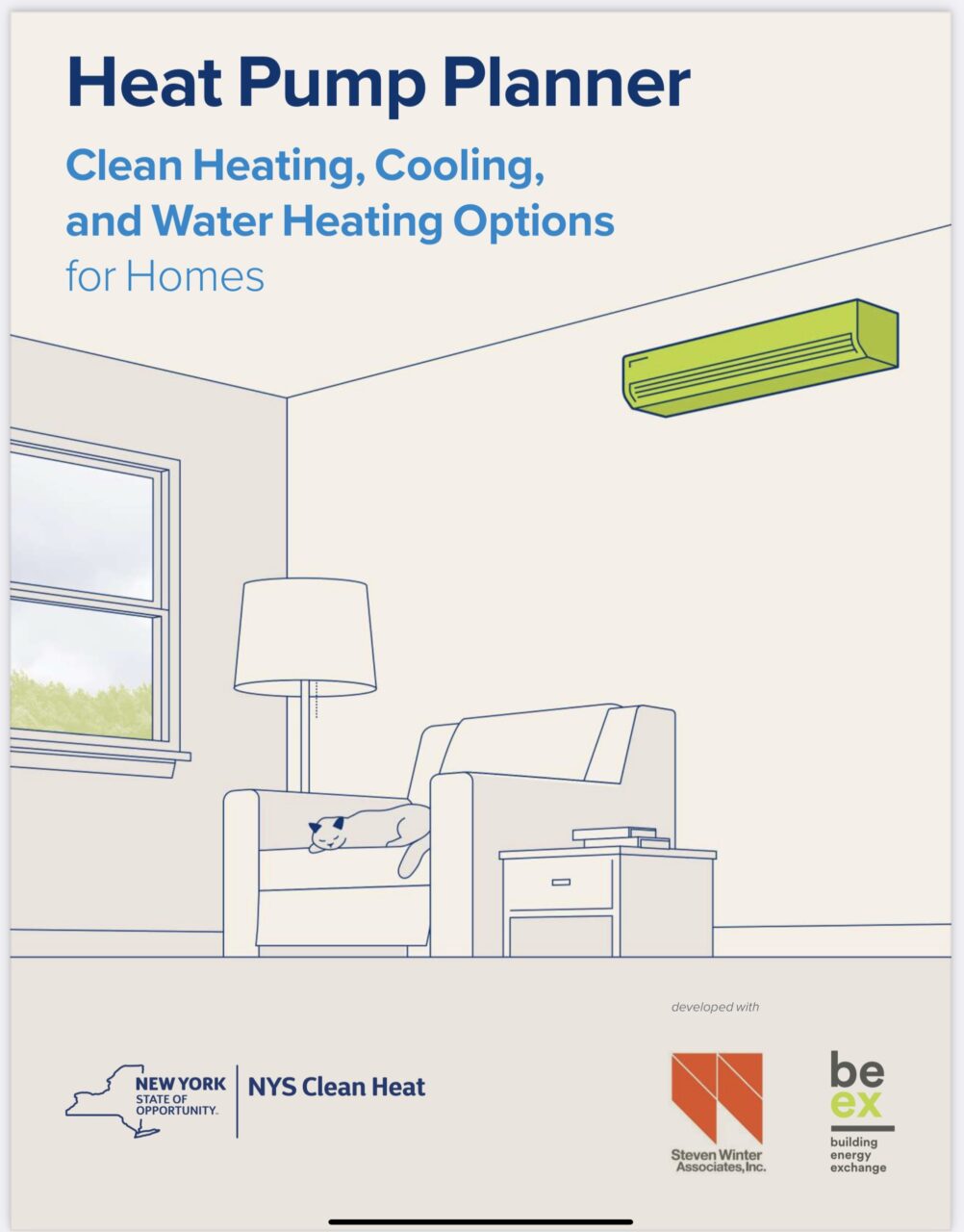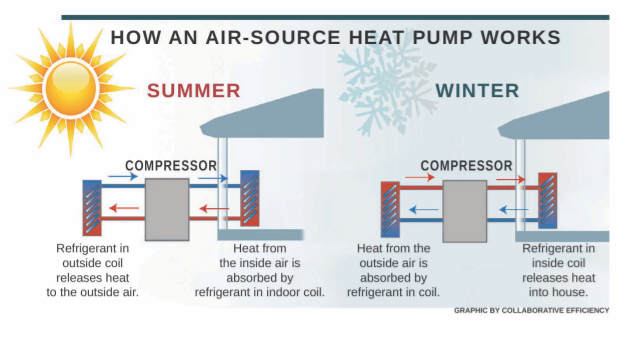HEAT PUMPS
Save Money While Cutting Greenhouse Gases
Using oil, propane, gas, or electric resistance to heat and cool your home?
Today’s cold-climate heat pumps are a smarter, more efficient option to keep your home comfortable all year long. These all-in-one heating and air conditioning systems are environmentally friendly, extremely efficient, and affordable to operate.
Questions? Ask us: ClimateSmartMillerton@gmail.com
The Benefits of Heat Pumps
Dual Heating and Cooling: Cold-climate heat pumps are designed to work efficiently in cold climates like New York — while also doubling as a cooling system in the summer.
Efficient & Reliable: The cost of heating and cooling your home with a heat pump is typically less than oil, propane, or electric resistance. Today’s cold-climate heat pump technology can reliably heat your home at near zero and below without the need for a backup system.
Zoned Temperature Control: With heat pumps, you can individually control the heating and cooling preferences of different rooms in your home.
Cleaner and Safer: There is no combustion of fossil fuels, fuel storage, or carbon monoxide emissions associated with heat pumps. Heat pumps also have the lowest carbon emissions of any heating source.
Easier: Heat pumps require minimal maintenance and eliminate the hassle of scheduling fuel deliveries and worry about fluctuating fuel costs. Additionally, you won’t have to struggle with installing/removing air conditioners in spring and fall.
Are Heat Pumps Right For Me?
I have an existing forced air duct system. Consider a central or mini-split heat pump that replaces or supplements your existing heating system, while also replacing the air conditioning in its entirety.
I have baseboards and/or radiators. Ductless units may be the right choice for you.
I only need to heat or cool one room. A single ductless unit will sufficiently heat and cool your room.
I have existing radiant heating. Cutting-edge ground-source geothermal technology can modernize your traditional system and make it more efficient.
I’m looking to supplement my current heating system. If your current heating system is working fine but could use a boost, try adding one or two additional single-zone ductless units.
I’m working on a new construction project. For a smaller house or apartment, one or two ductless units will heat and cool your space sufficiently. A combination of a compacted ducted system with one or two additional ductless units for bedrooms, etc., would be a good choice. For peak efficiency, consider adding a ground-source geothermal heat pump.
Find out more with the NYS Clean Heat Planning Tool.
Find A Contractor – Use the NYS Clean Heat Contractors search tool to find local contractors
Available Rebates / Financing / Tax Credits
Purchasing and installing a heat pump has never been more affordable. New York State and energy companies are offering rebates to lower your bills and stay comfortable year-round with state-of-the-art heating and cooling technology.
Ready to start saving? Answer a few simple questions about your home to get started.
Myth Busting:
Myth #1: You need a backup system to handle the coldest winter temperatures.
Dual fuel is a legitimate path, but it’s not really necessary with a cold climate heat pump, Standard heat pumps may need an alternate heating source like a furnace or boiler to take over when temperatures drop below freezing. Cold climate heat pumps, on the other hand, are equipped to handle the most frigid winters.
Myth #2: Turning down the heat at night saves energy.
We’ve been told for decades that we should turn down our home heating systems when we’re sleeping to save energy. That works great for boilers and furnaces, but it is not recommended with heat pumps.
While furnaces can quickly blast heat into your home, heat pumps take longer to raise the temperature. When you turn your heat down at night, you reduce the rate of heat output of your system, temporarily lowering your energy usage. But when you turn it back up in the early morning (when outside temperatures are at their lowest), your heat pump has to work extra hard to get the temperature back up.
Turning the heat down or off at night just isn’t as efficient as picking a comfortable temperature, setting it, and leaving it alone.
(Excerpted from NYS CLEAN HEAT https://cleanheat.ny.gov )

